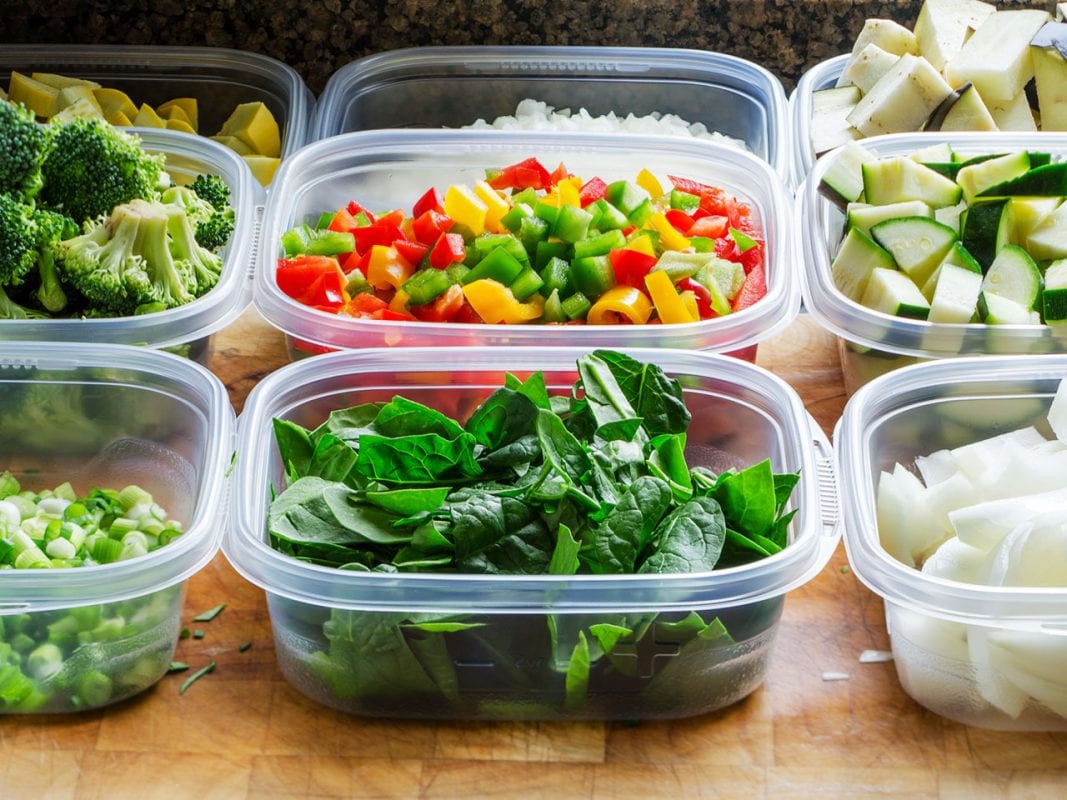You’ve heard it once and you’ll hear it again, the key to managing cravings and staying on track with a diet is planning healthy meals. Forecasting what you are going to eat when not only provides you with control, but it also allows you to stay committed to your chosen diet plan. Having a mindset of what you will be consuming next can help keep you focused on your goal of weight loss or maintenance.
Here are a few other tips to keep in mind when considering meal planning:
It can help you learn portion control
Let’s face it, no one ever got overweight from eating proper portions and partaking in proper nutrition. In meal planning, ingredients must be weighed or measured to obtain the correct nutrition or calorie count. This allows you to be diligent about what you are putting into your body, thus teaching you portion control. Over time, people tend to stray away from proper portions, so revisiting this topic can induce weight loss again.
Ensures healthy food options are available
When hunger hits, you can usually stave it off for a while by staying busy or drinking water. However, when you become hungry enough, it is easy to grab the quick, easy snack that is right in front of you. This isn’t typically a healthy option. By having a meal or snack ready and waiting, you are less likely to partake in unhealthy food options.
Saves you time and money
Having quick meals that are ready to grab and go can save you time. If you must prep and cook a meal, you are more likely to grab a precooked option that is fried, full of preservatives, or ridden with sodium. Not only does meal planning save you time, but it is a budget-friendly decision. Purchasing fresh products at the store and preparing it yourself is dollars cheaper than a pre-made salad. Pair that with wasted money from throwing food away that you didn’t prepare, and you can save hundreds of dollars every year.
Avoids food waste
Going to the grocery store on an empty stomach is never a good idea. Neither is shopping without a plan, as it inevitably leaves you with foods that will never be eaten. Staying on track with a meal plan gives you a purpose for every food that you purchase, providing you with just enough to get through the week.
Allows you more control
When you eat out, you are at the mercy of whatever the fast food restaurant has available. Even the healthiest options are often made ahead of time, full of preservatives and sodium, and lack flavor. Nutrient-rich options at a restaurant are typically higher-priced, too. Purchasing food from fast food joints or convenient stores doesn’t allow you control over your calorie count or nutrient bases, either. Regardless of what the nutrition label says, additional ingredients may be added that are undisclosed.
Eliminates stress about food
Going out to eat and trying to maneuver through nutritional labels on the fly can be tough. Planning diet meals takes the thought out of nutritional guidance. You simply eat what you have already planned, prepped, and counted. It’s as simple as that. A little more time may go into the upfront planning, but in the end, meal planning is less stressful. If you are unsure of where to begin with meal planning, you can find tips and ideas from a variety of sources. Books about meal planning are abundant. Many websites also have really good paleo meal plans available. Advice from friends is beneficial, too.
Helps you refrain from indulgences
The healthiest way to have a cheat meal or cheat day is to plan it into your meal schedule and fitness regimen. By surrounding cheat days with other days of lower caloric intake, partaking in indulgences will do less damage. Planning in expected cheat meals or days can be beneficial, because even though you are indulging, you are doing so in a controlled manner. Binge-eating can be dangerous for a weight loss plan, so planning small indulgences here and there can help control cravings and avoid rebellion from healthier eating.
Fuels your workouts
There is a progressive matrix that creates a balance between nutrition and a physical fitness regimen. Certain types of workouts require methods of fuel. Planning out meals and workouts to complement each other can help you achieve your goals in a shorter period. For example, eating more carbs before a cardio workout can provide you with the quick fuel that you need to go the distance. Whereas, eating more protein after a strength training workout can help build muscle tissue faster. Get the most out of your workout by meal planning around it.
Allows you to enjoy flexibility
Perhaps the greatest benefit of planning your diet meals is the flexibility that comes along with it. Some days you may want to go lighter on protein, other days you may just be craving a steak. If you don’t meal plan, you are more likely to eat the same meals because you may lack variety.Meal planning allows you to take your nutrition into your own hands and explore your taste buds. Planning diet meals warrants you to break out those new cookbooks and try something new.
Staying fit and healthy through meal planning is easier than it sounds.Investing time and money into meal planning ultimately saves additional time and money from waste later. Meal planning makes your life easier, healthier, and economical by facilitating the purchase of only what is needed to make pre-planned meals for days or weeks at a time. Not only do planned meals help you stay on track with your health goals, but they also allow for property workout fuel. Timing nutrition and workouts in a smart way can help you achieve your fitness goals in a reduced amount of time. So, what are you waiting for!? Grab your grocery list and containers, and starting meal planning today!









